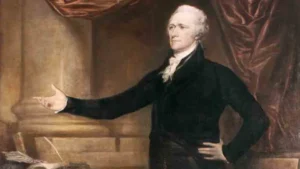Last updated on April 20, 2019
Graduation is an exciting time when students close one chapter in life and begin a new one. Vol State graduates have put in the work and passed the tests. No one did it for them, and they can be proud. This landmark in their lives demonstrates their ability to succeed. Each student can share stories of their struggles and how they persevered along the way.
A college education is much more than a path to a good career. Whether students are heading off to a four-year college or going into the workforce, the hope is that students will consider their college days as just the beginning of a lifetime of continued learning. Our society needs people who remain students of history and are well-informed of current events to critically think through today’s biased media narratives and social media hype.
The world that’s being handed to graduates is one of turmoil and uncertainty, our own country being divided more than at any other time since the Civil War. The student of history knows the destructive effects of such division on a civilization. On both sides of the divide stand educated people, and our young people have the heavy responsibility of sorting through their persuasive, extreme views to make good decisions for their families, workplace and country.
The student of history recognizes the need for citizens who are not only educated and informed, but who have a moral code. We live in an increasingly self-focused society, as evidenced by recent media stories of university student’s “selfie deaths.” Smartphones, social media and selfies are causing people to be more distracted and more likely to take extreme risks to gain a moment in the social media spotlight.
The problem of self-absorption not only leads to a personal and social dead end, but we miss important things while we are distracted. In fact, a turn toward self-indulgence and abandon of a religious moral code preceded the fall of the great civilizations of Greece, Rome, Egypt, Carthage, and many others.
As nationally syndicated columnist Kerby Anderson wrote, “There are many reasons for the decline and fall of a nation, but an important (and often overlooked) reason is its abandonment of religion. Culture (cult-ure) is based upon some form of religious or spiritual worldview. Egypt was a religious society founded on the worship of nature gods and goddesses. Greece and Rome had their pantheon of pagan deities. And the list of nations in India, China and other parts of the globe all demonstrate the principle that civilization arises from religion.”
If Anderson is right, the Dec. 2018 American Family Survey is a cause for concern. It found that less than half of Americans consider religion to be “extremely” or a “very important part of their identity,” with 35% of respondents identifying themselves as non-religious.
Free society is changing exponentially. Our hope is that students not only recognize, but embrace the role they have in shaping it. Their awareness of and response to events and societal trends will shape our future.





Comments are closed.